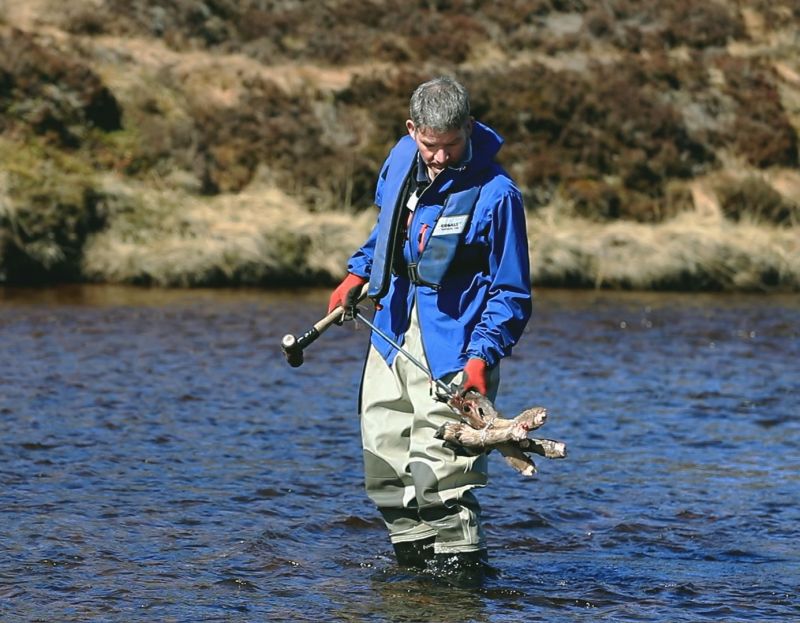
A Scottish deer estate has created an innovative way to help boost the population of wild salmon in the country’s rivers.
The Glenmuick Estate appeared on BBC's Countryfile to show the work it is doing to help ‘The Missing Salmon Project’ – an Atlantic Salmon Trust initiative which is trying to reverse the decline of wild salmon in Scotland.
The salmon in the River Dee and the River Muick, which both flow through the estate, are being given a helping hand by the deer farm.
Deer legs, a by-product from the farm, are being used by the Dee District Salmon Fishery Board to return nutrients to the rivers.
Juvenile salmon are then able to feed on the nutrients, increasing their chances of survival and boosting the salmon population in the long term.
Ian McKenzie, an associate at Fisher German who is responsible for managing the estate, helped get the project off the ground after the Deeside Fisheries Board got in touch to see if they could help.
He said: “We were contacted by the Deeside Fisheries Board who asked if we could supply them with deer legs from Glenmuick deer farm to help with salmon conservation.
“I approached Glenmuick’s owner to see what he thought, and he was only too happy to help. Deer legs are a waste product that butchers don’t want, so it made perfect sense to give them to the Deeside Fisheries Board to make use of them.”
Ian McKenzie added: “We’re always looking for ways to help the environment, so getting involved with a project aimed at reversing the decline in Scotland’s wild salmon seemed like a worthwhile thing to do.”
The work Glenmuick has done to help Scottish salmon is set to be featured on BBC’s Countryfile after camera crews visited the estate at the end of April.
